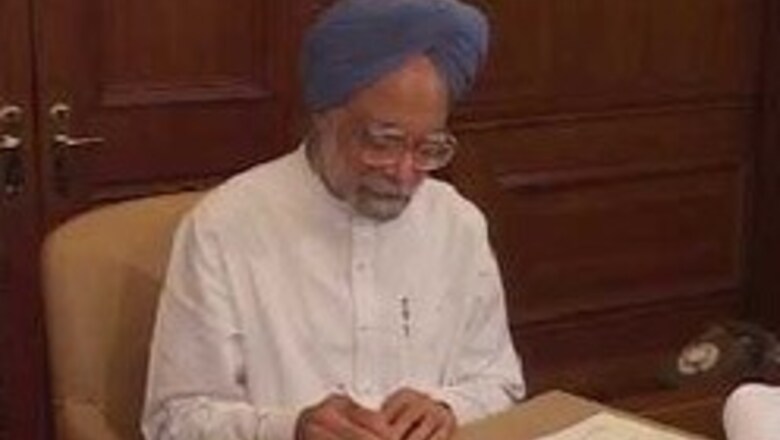
views
New Delhi: India and Russia will focus on forging a long-standing energy partnership and sign four agreements on space and defence cooperation at the sixth summit meeting between Prime Minister Manmohan Singh and President Vladimir Putin on Monday.
The Prime Minister, who leaves for Moscow on a three-day visit on Sunday, recently said, "the Indian-Russian dialogue in various spheres has reached an unprecedented level of intensity."
In line with statement of the PM, the two sides will sign agreements on the crucial military Intellectual Property Right (IPR) agreement and another to amend the Indo-Russian Military-Technical Programme till 2010 to enhance and expand strategic partnership relations.
The space agencies of the two countries will also sign a Technology Safeguard Agreement to operationalise the 2004 pact on the joint use of space-based Global Navigational Satellite System (GLONASS) to provide for joint development of new generation navigational satellites and their launch from India aided by Indian launch vehicles.
Indian Space Research Organisation (ISRO) and Russian Space Agency Roskosmos will also ink an agreement on cooperation in Solar Physics and geophysical research.
It provides for the joint development of the new generation Glonass-K navigational satellites and their launch from India aided by Indian launch vehicles.
Although India has already acquired a major stake in the Sakhalin-I oil and gas project by investing $2.7 billion, it is still looking at participating in Sakhalin-III and bidding for exploration blocks in the Siberia region.
Foreign Secretary Shyam Saran said that the country is also keenly interested in an an equity partnership with Russian oil majors like Gazprom.
Russia has already indicated its interest in participating in the construction of trans-national gas pipelines between Iran-Pakistan-India and also Turkmenistan-Afghanistan- Pakistan and India.
Observing that the two countries had grown from a vendor-client relationship in defence cooperation to one aimed at joint R&D and marketing of products, Saran said Moscow and New Delhi were now looking at further expanding this relationship with their jointly produced BrahMos cruise missile being a glaring example.
During the sixth Indo-Russian Summit with Russian President Vladimir Putin, the Prime Minister will stress the need to enhance bilateral trade between the two nations which has slid down from the days of the Soviet Union to $1.8 billion.
It has been decided to set up a Joint Study Group to look at the prospect of increasing trade volumes and establishing new partnerships, the foreign secretary said.
Given the agenda on a broad range of bilateral issues, he said the two sides have agreed to prepare a "checklist" during the visit to monitor progress made in implementation of decisions on various counts.




















Comments
0 comment